YOURSELF DEBRIEF

Thank you for being here and for the incredible effort you put into our action! We know that not everyone can make it to the main debrief, so we’ve put together this DIY guide to help you process and share your experiences with your group. Why This Matters Debriefing is more than just a chance to talk about what happened; it’s a way for us to connect, support each other, and reflect on our journey together. It’s an opportunity to share the highs and lows, learn from what we’ve experienced, and build our strength as a group. Each of us has a unique perspective and feeling about the action, and by coming together to debrief we can help each other navigate those experiences. This practice not only supports our personal wellbeing and regeneration, but also strengthens our movements collective resilience and effectiveness. How to Use This Guide In your affinity group or with trusted people, you can use this guide to take turns sharing and listening. Find a safe and private space together. This space is for you to be heard and to hear others, without judgment or interruption. Take your time, and let’s create a supportive environment where everyone feels comfortable sharing their experiences. :) Thanks for being a part of this journey. Now, let’s dive into the debrief and help each other move forward, stronger and more connected. Love, the care-team x
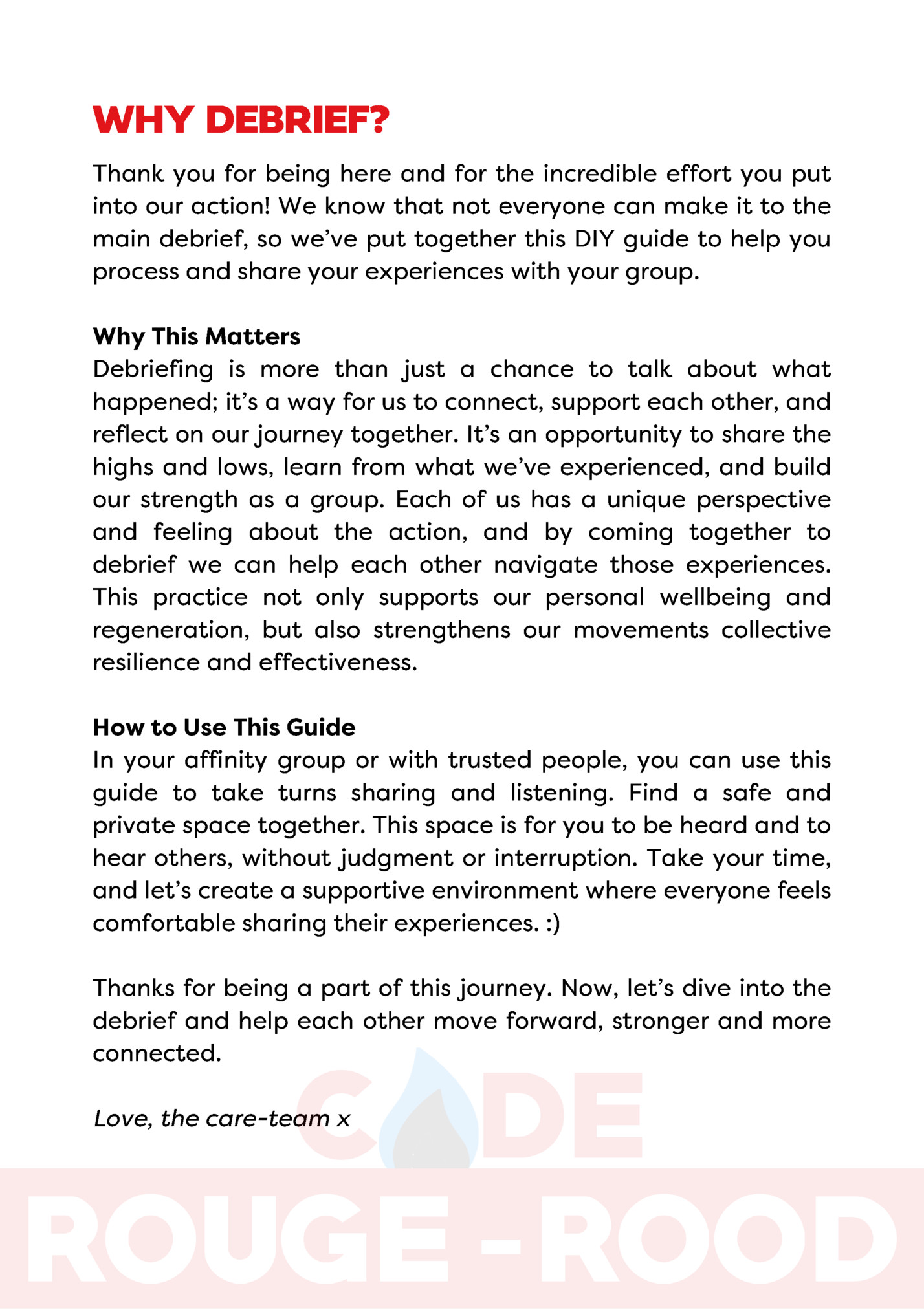
First we are going to check in. This is important to make sure the whole group can ease into the debrief and so that we can already hear how people are coming in to this moment. You can start with a little round of introduction. Everyone takes the word. 1. Introduce yourself (if necessery) : alias, pronouns and or anything relevant 2. What has your experience with Code Rood/Rouge been? (if you want to share 3. Pick one, or multiple question s: Why did you want to come today? Why did you not want to come today? What made you want to stay home? What would you like to leave here after you go home?
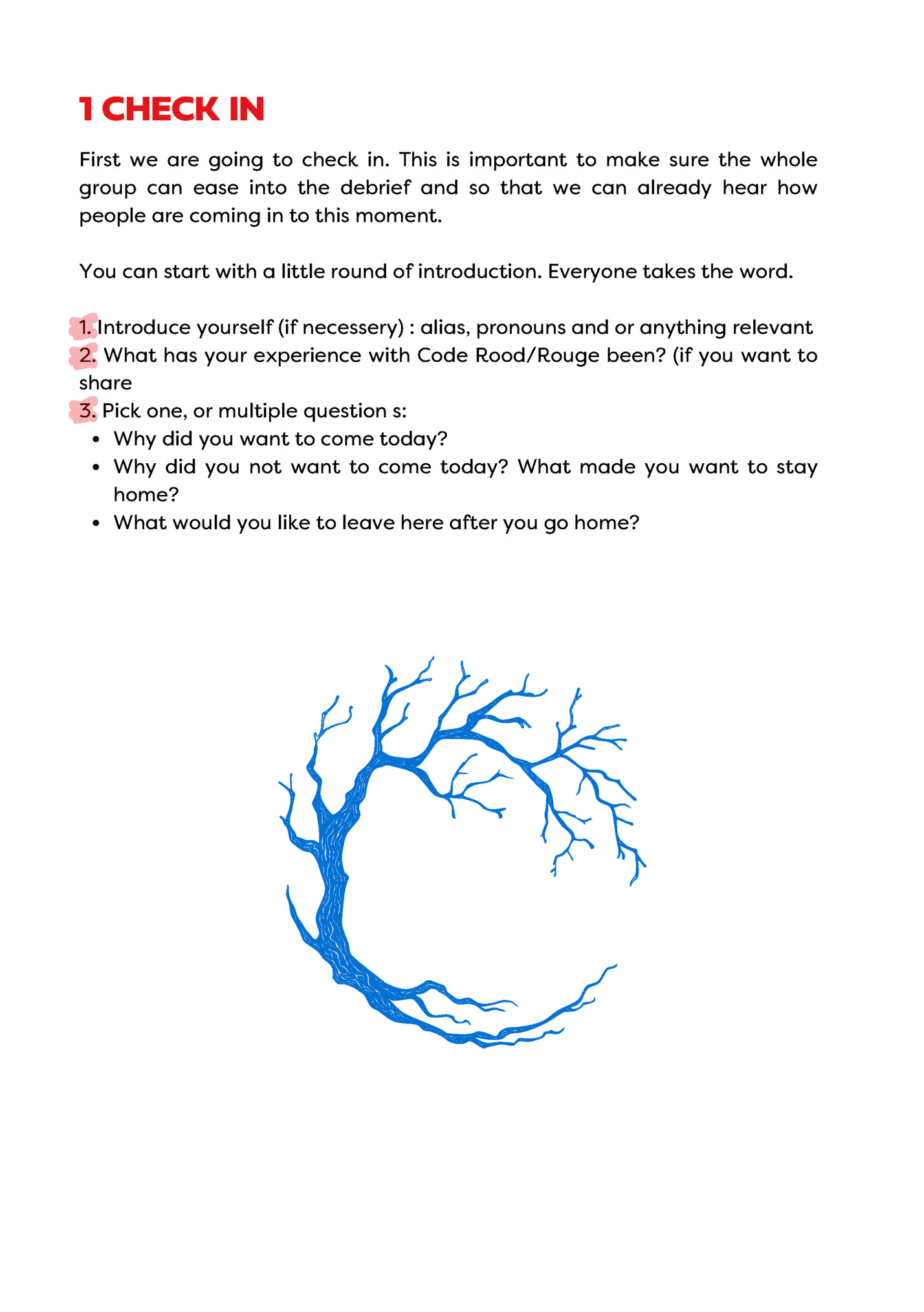
For this exercise, we are going to start writing down the events of the action. Each person individually creates a timeline starting from the moment Code Rouge started for them until it ended. You can choose the starting point for yourself, it does not need to be the same as others. 1. First think about what happened? Write down, draw, map out, ... all the events you excperienced. (It might look something like this, or not at all ) 2. Now, it’s time to start thinking about how you felt. For this, look at the model below. Try to pinpoint at which points you were in your comfort-, stretch- or paniczone. Draw this on your timeline like a heartrate monitor. (you should end up with something like this ) 3. In groups of 3 or 4, share your timeline briefly with eachother. Take 2 minutes each for this.
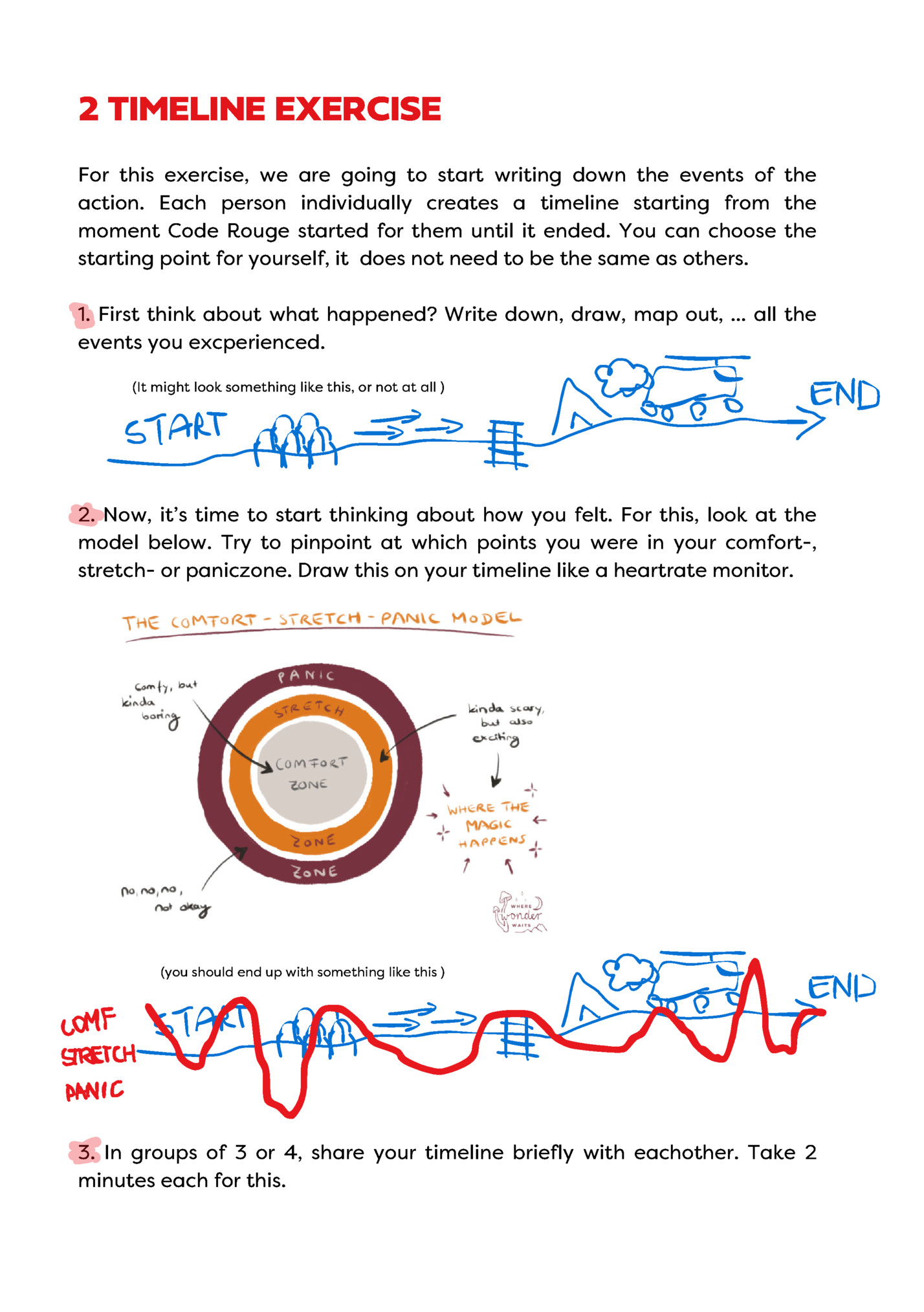
Time to share! For this exercise we will do a sharing circle. You can take the word one after another and share something based on your experiences participating in the action. You can pick a defining moment, a difficult moment of a nice one. You choose what and how much you want to share. If this is hard for you you can also chose to do it based on the sentence starters below Form two circles if you’re to many so that you have enough time to share. One moment I want to come back on The most difficult moment for me The funniest moment The happiest moment Something I noticed that was unusual to me I would have done something differently 4 GET COMFORTABLE WITH SOMEONE Next we are going to take some more time to check in whit our buddy. If your buddy it not present, choose a person you feel comfortable with. We are now going to take turns talking about the action. One person starts with talking for 2 minutes, the other person litstens in complete silence. When the minute is over, you switch. Go over all or some of the following sentence starters repeating the exercise above. Before going in the the action I felt like... The moment I felt the most uncomfortable was... The moment I felt the most powerfull was... An emotion that stuck with me was... After the action I felt like...
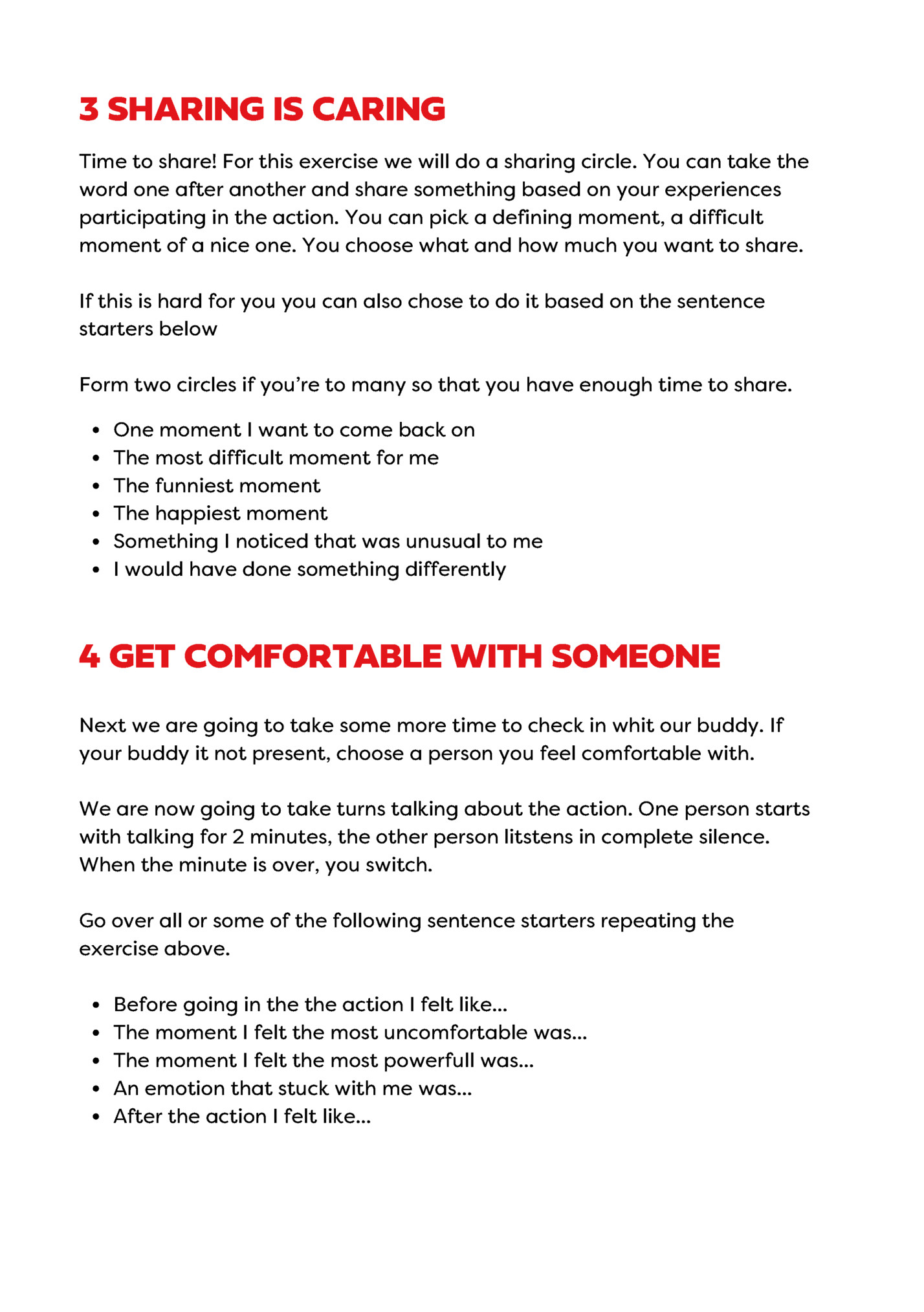
Doing a mass action might leave an impression. We are faced with a lot of intense emotions. Happy ones, and more difficult ones. We have taken the time to express some of these emotions today. But this debrief is just a starting point of being able to express and work throug those emotions. So, for this exercise we are going to look forward. Now that we have expressed what you expierienced, let’s take a look at how we can take care of ourselves and the ones around us in the coming days, weeks, months even. Fort this we are going to use the “resilience pie”. It was inventes to recognize and build your own resilience, through different domains. 1. Individually, look at the resilience pie and write down a few things you can do in the coming weeks to take care of yourself, of others or how others can care of you. 2. Share your favourite ways to care with the group. Food, sleep, rest, medical care, safety, rythm and routine Connection to nature, rootedness Connection to others, recharging, relaxation, celebrations Resourcing, self-awareness Tutorship, care (of each others and ourselves) Problem solving skills, self-control, self-efficacy, learnings Imagination, expression Motivation, life questions More infos : https://supportrecoveryteam.wordpress.com/
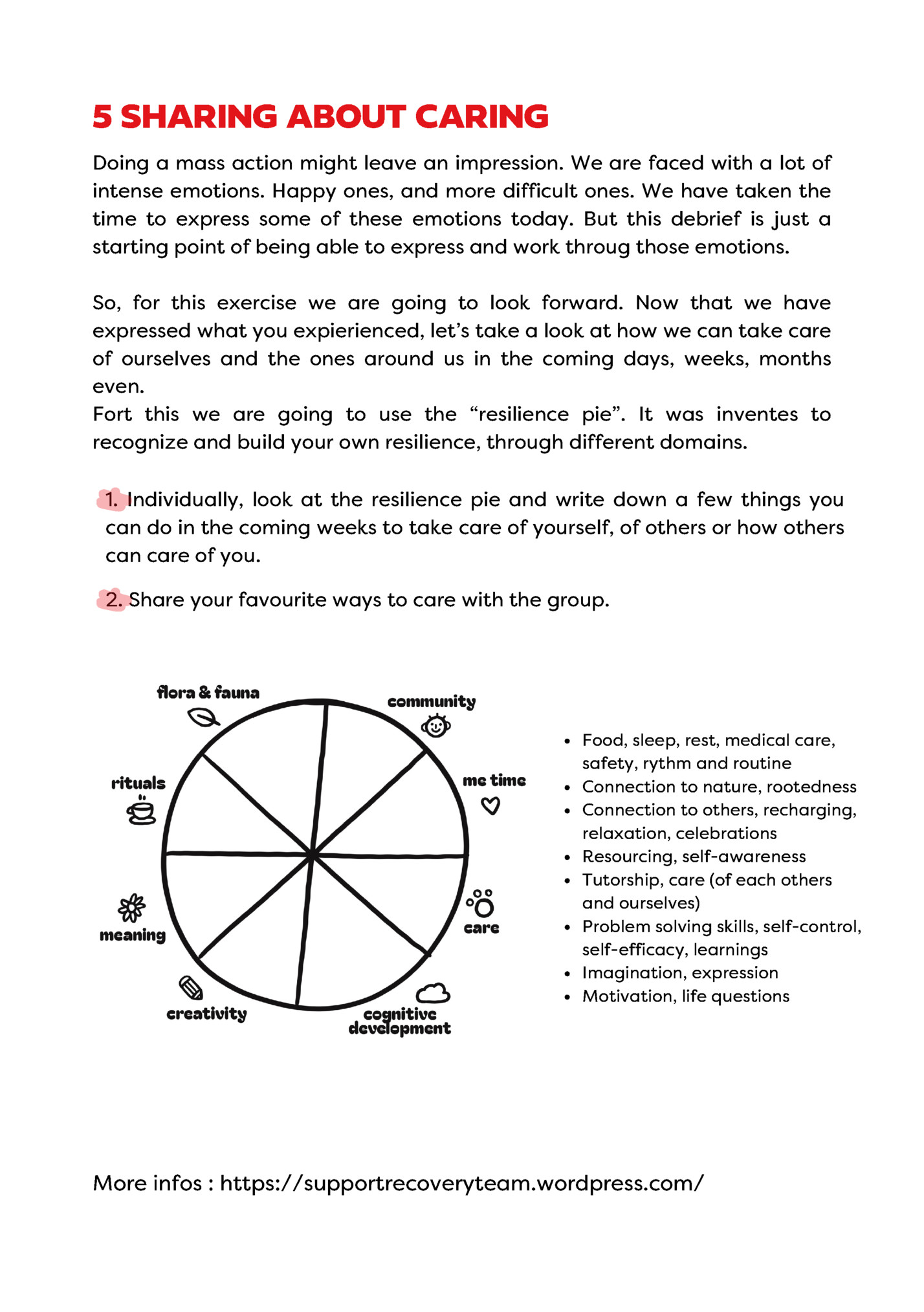
Time to round up this debrief. We like to in the end let go a bit, but also to hold on to the things that matter to us. That’s why we propse the following check out questions. What emotion, thing, realisation of the past weeks will you keep close to your heart? What emotion, thing, though will you leave here today? Hopefully this debrief could be the first step towards processing the action. But please do not let it be the end. Take care of eachother Take care of yourself Keep caring, cause it’s the most beautiful thing to do! Areej Kaoud
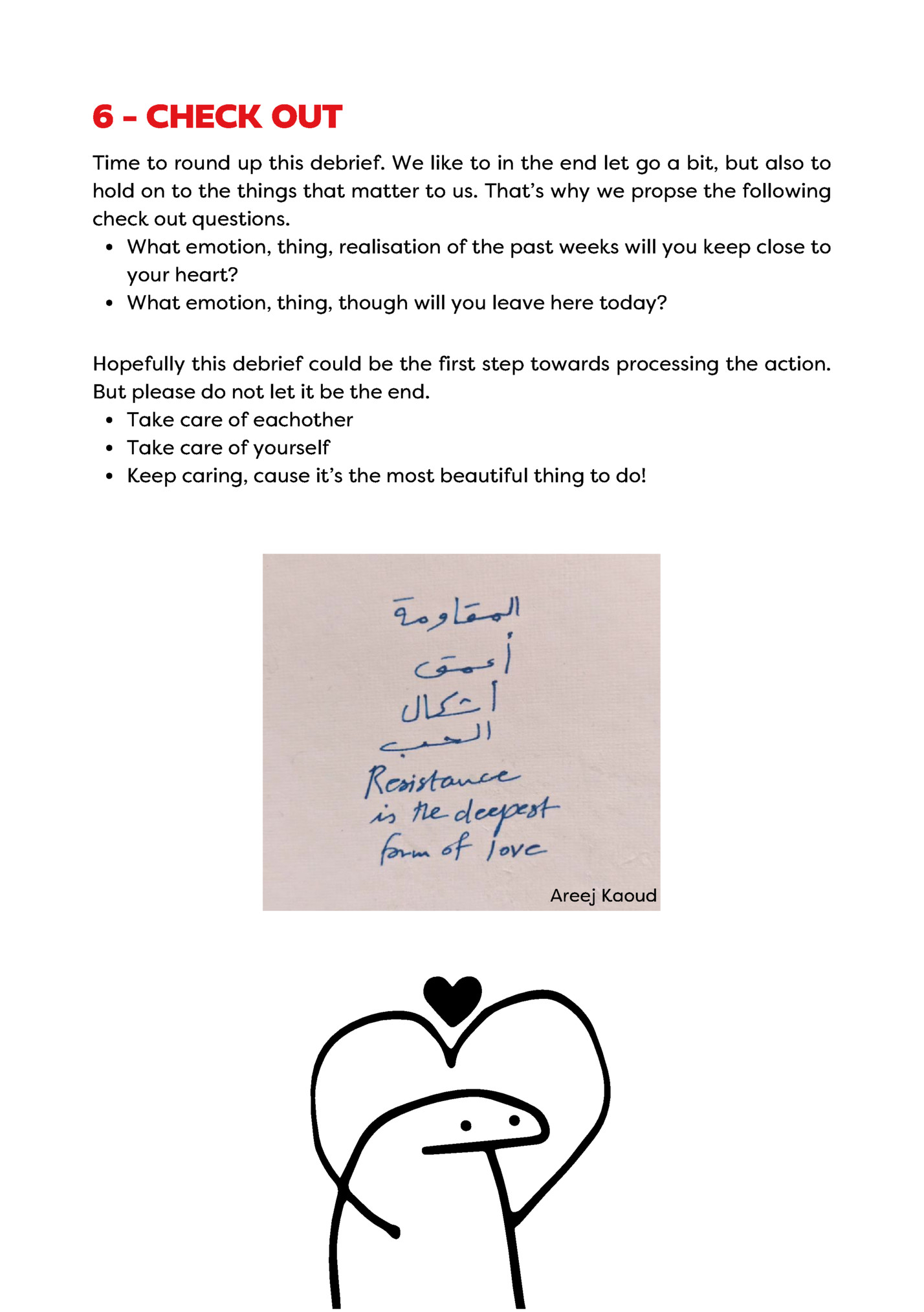
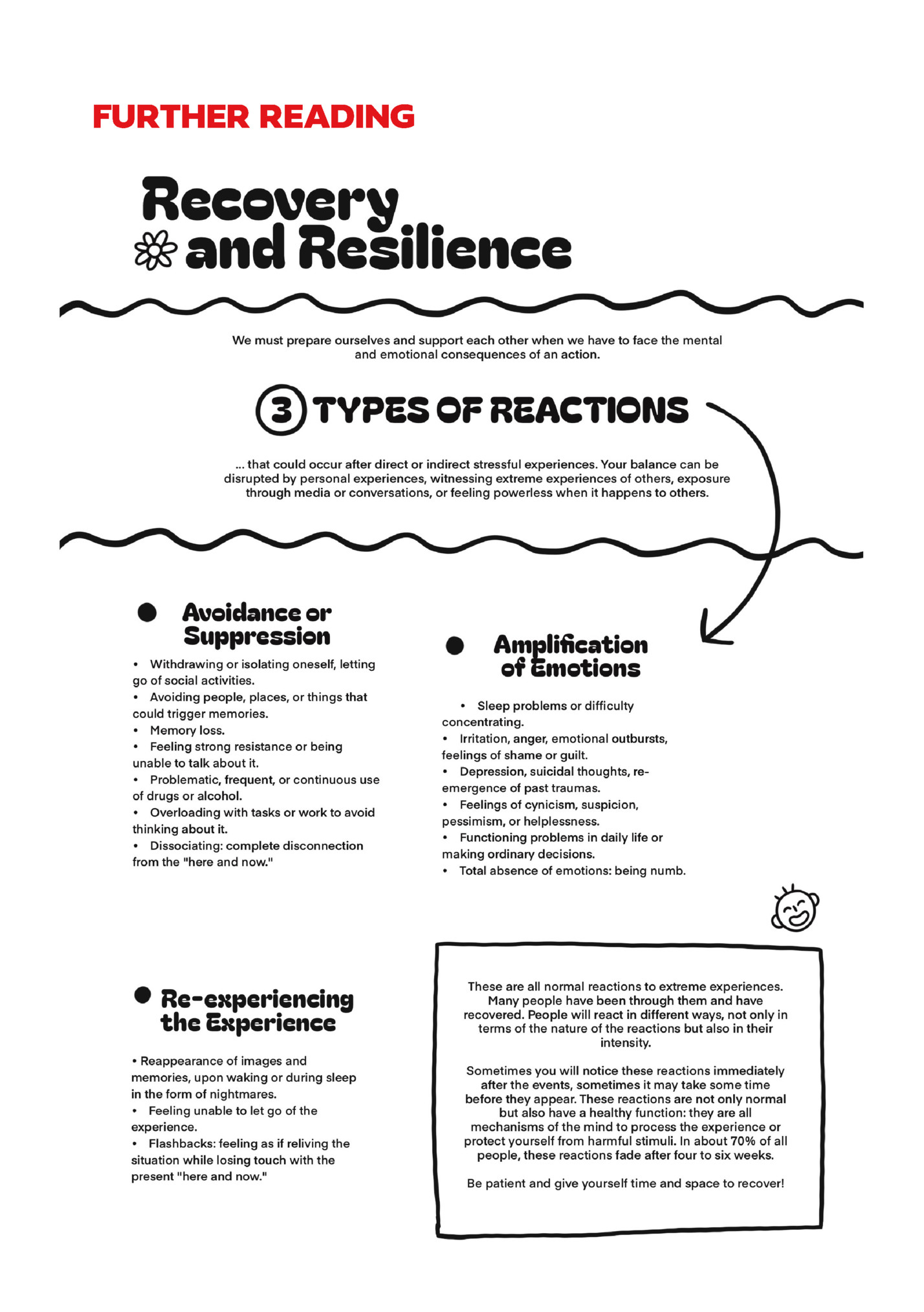
We wanted to leave you with a reflexion on emotions inspired by Joanna Macy. All emotions are adaptative (usefull to survive) and hides a message. Sadness Love for life E.g.: If you feel sad about forest lost, it also reveal the love you have for the forest Anger Passion for Justice E.g.: You may be angry against some industries, so you may claim for climate or economic justice Fear Courage and trust E.g.: Being afraid of social crisis consequences shows the trust you keep for the future and how brave you can be to act against it Powerless Possibility for a new begin E.g.: Faced with such a huge task, there’s a call for a new society, new rules Shame and guilt Authenticity Confusion Clarity E.g.: We can realize we didn’t act according to our values, that ask some introspection and lead to more authenticity E.g.: In times of transition, we can feel confused. With reflexion, clarity will guide you to the best option
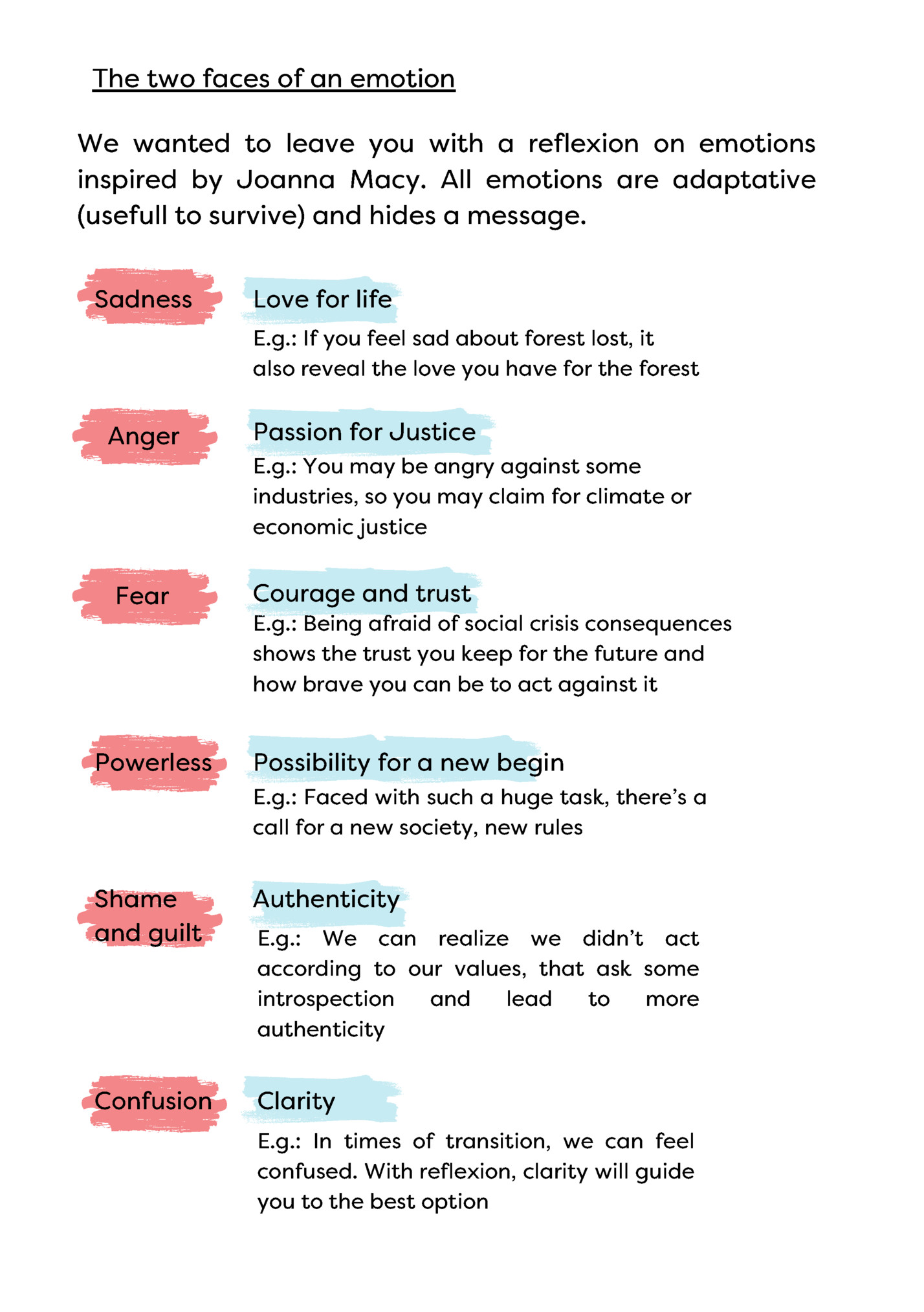
Fleepit Digital © 2021